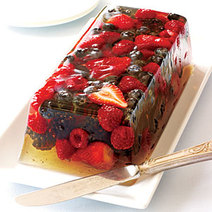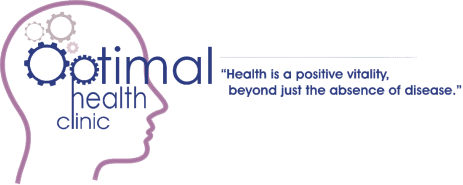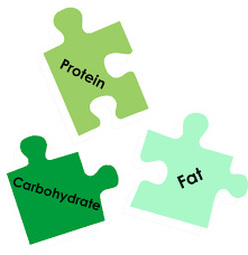
We tend to favour lean muscle meats over high in gelatin animal parts like skin, tendons, and other gelatinous cuts. More traditional diets are much higher in gelatin. Let’s look at the benefits of gelatin and ways we can incorporate more of it in our diets.
Why to include gelatin?
Beautiful skin.
Gelatine provides non-essential amino acid glycine. It means our body can make glycine but the problem is we don’t make enough to meet our needs. Glycine is the primary amino acid in collagen, one of the primary structural element of skin. It makes our skin healthy and beautiful, providing elasticity and preventing excessive wrinkling.
Healthy joints
Gelatin improves joint health and reduces inflammation. Athletes, who supplement collagen, experience less pain in their joints, which can significantly improve performance. It also supports healing and speeds up recovery from injuries. People suffering from inflammatory joint or bone diseases like arthritis or osteoporosis, can also benefit from collagen consumption to manage inflammation and pain.
Meat consumption balance.
Muscle meats are high in amino acid methionine, that rises homocysteine levels. High homocysteine is a significant risk factor for heart disease, stroke, and other serious diseases. You need adequate glycine intake to balance out the potentially negative effects of high animal protein consumption. This may be why some studies show correlation between high meat intakes and various disease states.
Improved sleep quality.
Glycine consumed before bed (in the amount of 3g) has been shown to help with sleep and with no side effects. It is also an inhibitory neurotransmitter, which can decrease anxiety and help you to stay calm.
Gut health.
Gelatin improves gut integrity and digestion by supporting healthy mucosal lining and stimulating stomach secretions. Both, poor digestion and impaired gut integrity, are very common in our society. Gelatin also promotes healthy bowel movements.
Protein sparing.
Gelatin intake reduces muscle meat needs to maintain muscle mass meaning that you can put on and maintain muscles without high animal protein consumption.
Reduces wasting of animal parts.
Gelatin uses parts of the animal that might not be used otherwise, making it more environmentally-friendly. This is more traditional way of meat consumption with minimal wasting.
Enhances taste.
Used in soups and sauces significantly enhances your cooking. It gives better richer flavour with additional health benefits.
How to incorporate more gelatin into your diet?
1. Eat gelatinous parts like skin, necks, and tendons. You can use slow cooker so they become really tender.
2. Drink bone broth or use it in cooking to make soups and sauces. It’s very beneficial to have small amounts (1/2 cup) each day.
3. Use high quality grass-fed gelatin powder like ‘Great Lakes’. Whole protein gelatin is great for digestive health. It must be mixed into warm fluids and can be used to make jello.
4. Hydrolyzed form can be used as protein powder added to smoothies, any type of liquid including cold drinks and juices. It can improve skin, joint health and improve your sleep.
Why to include gelatin?
Beautiful skin.
Gelatine provides non-essential amino acid glycine. It means our body can make glycine but the problem is we don’t make enough to meet our needs. Glycine is the primary amino acid in collagen, one of the primary structural element of skin. It makes our skin healthy and beautiful, providing elasticity and preventing excessive wrinkling.
Healthy joints
Gelatin improves joint health and reduces inflammation. Athletes, who supplement collagen, experience less pain in their joints, which can significantly improve performance. It also supports healing and speeds up recovery from injuries. People suffering from inflammatory joint or bone diseases like arthritis or osteoporosis, can also benefit from collagen consumption to manage inflammation and pain.
Meat consumption balance.
Muscle meats are high in amino acid methionine, that rises homocysteine levels. High homocysteine is a significant risk factor for heart disease, stroke, and other serious diseases. You need adequate glycine intake to balance out the potentially negative effects of high animal protein consumption. This may be why some studies show correlation between high meat intakes and various disease states.
Improved sleep quality.
Glycine consumed before bed (in the amount of 3g) has been shown to help with sleep and with no side effects. It is also an inhibitory neurotransmitter, which can decrease anxiety and help you to stay calm.
Gut health.
Gelatin improves gut integrity and digestion by supporting healthy mucosal lining and stimulating stomach secretions. Both, poor digestion and impaired gut integrity, are very common in our society. Gelatin also promotes healthy bowel movements.
Protein sparing.
Gelatin intake reduces muscle meat needs to maintain muscle mass meaning that you can put on and maintain muscles without high animal protein consumption.
Reduces wasting of animal parts.
Gelatin uses parts of the animal that might not be used otherwise, making it more environmentally-friendly. This is more traditional way of meat consumption with minimal wasting.
Enhances taste.
Used in soups and sauces significantly enhances your cooking. It gives better richer flavour with additional health benefits.
How to incorporate more gelatin into your diet?
1. Eat gelatinous parts like skin, necks, and tendons. You can use slow cooker so they become really tender.
2. Drink bone broth or use it in cooking to make soups and sauces. It’s very beneficial to have small amounts (1/2 cup) each day.
3. Use high quality grass-fed gelatin powder like ‘Great Lakes’. Whole protein gelatin is great for digestive health. It must be mixed into warm fluids and can be used to make jello.
4. Hydrolyzed form can be used as protein powder added to smoothies, any type of liquid including cold drinks and juices. It can improve skin, joint health and improve your sleep.


 RSS Feed
RSS Feed